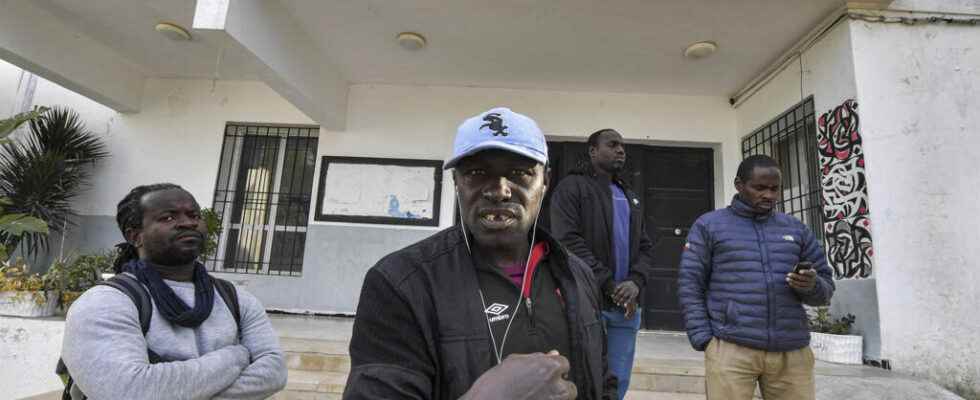In Tunisia, a group of nationals from sub-Saharan countries has been threatened with expulsion since a decision by Najla Bouden’s government announced on Thursday 23 December. Arrived in Tunisia in 2011 via Libya, they must now return to their respective countries. a.s.a.p “Judge Tunis. An NGO specializing in the migration issue expressed its ” indignation at the repressive and inhumane decision “.
With our correspondent in Tunis, Amira Souilem
” Well, in all there are ten rooms here and upstairs there are nine rooms. you want to go upstairs ? “, announces Adam Traoré in the tour of the place, a little bitter. He arrived in Tunisia in spite of himself:
” In 2002, there was the war in Côte d’Ivoire, Côte d’Ivoire went through a 10-year crisis, because of this war, we moved. We ended up like that in Libya. We fled two wars, we fled the war in Côte d’Ivoire and we arrived in Libya, there is another war that is there, that we are still fleeing. »
Eritreans, Chadians, Ghanaians, Ivorians, Egyptians, Sudanese… In all, at the height of the war in Libya, more than a million flocked to Tunisia. Since then, these exiles have returned home or been hosted in Western countries. That leaves Adam and his friends, 25 rejected asylum seekers:
” We knock on every door. UNHCR (UN High Commissioner for Refugees – editor’s note) tells us that there is no solution for us and that we must return to our homes, to our countries. »
Considered nationals of safe countries, Adam and his friends have learned from the media that the Tunisian authorities now want to deport them. Today, their only support comes from Tunisian civil society. Romdhane Ben Amor is the spokesperson for the Tunisian Forum for Economic and Social Rights (FTDES):
” What we had proposed was that the countries involved in the war in Libya, Tunisia and the UNHCR meet to find a solution. We are talking about people who have spent more than eight years in the desert in very harsh and who now find themselves in Tunisia without knowing anything about what awaits them and without basic assistance. »
If confirmed, this expulsion risks setting a precedent, according to human rights activists.
► Read also : These young Sub-Saharans who want to innovate in Tunisia
